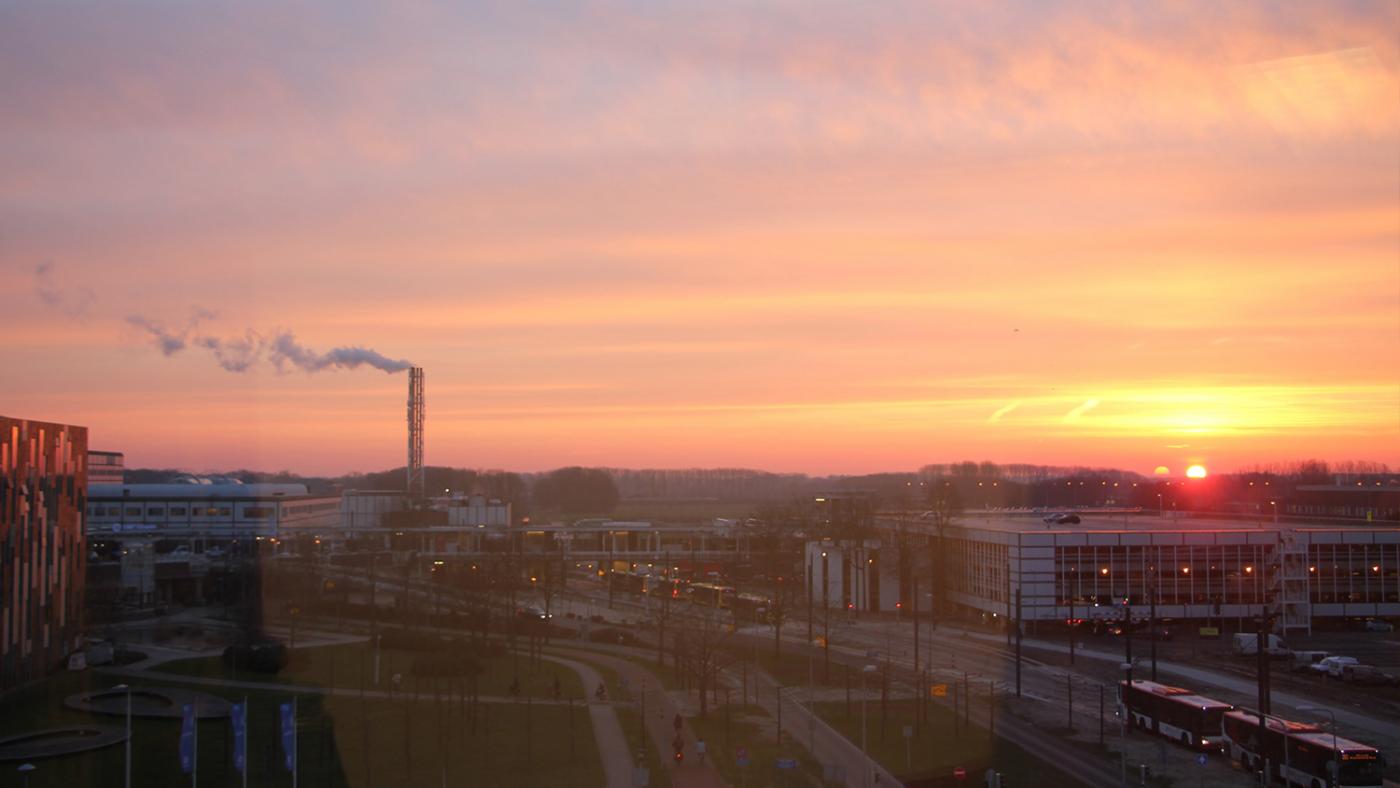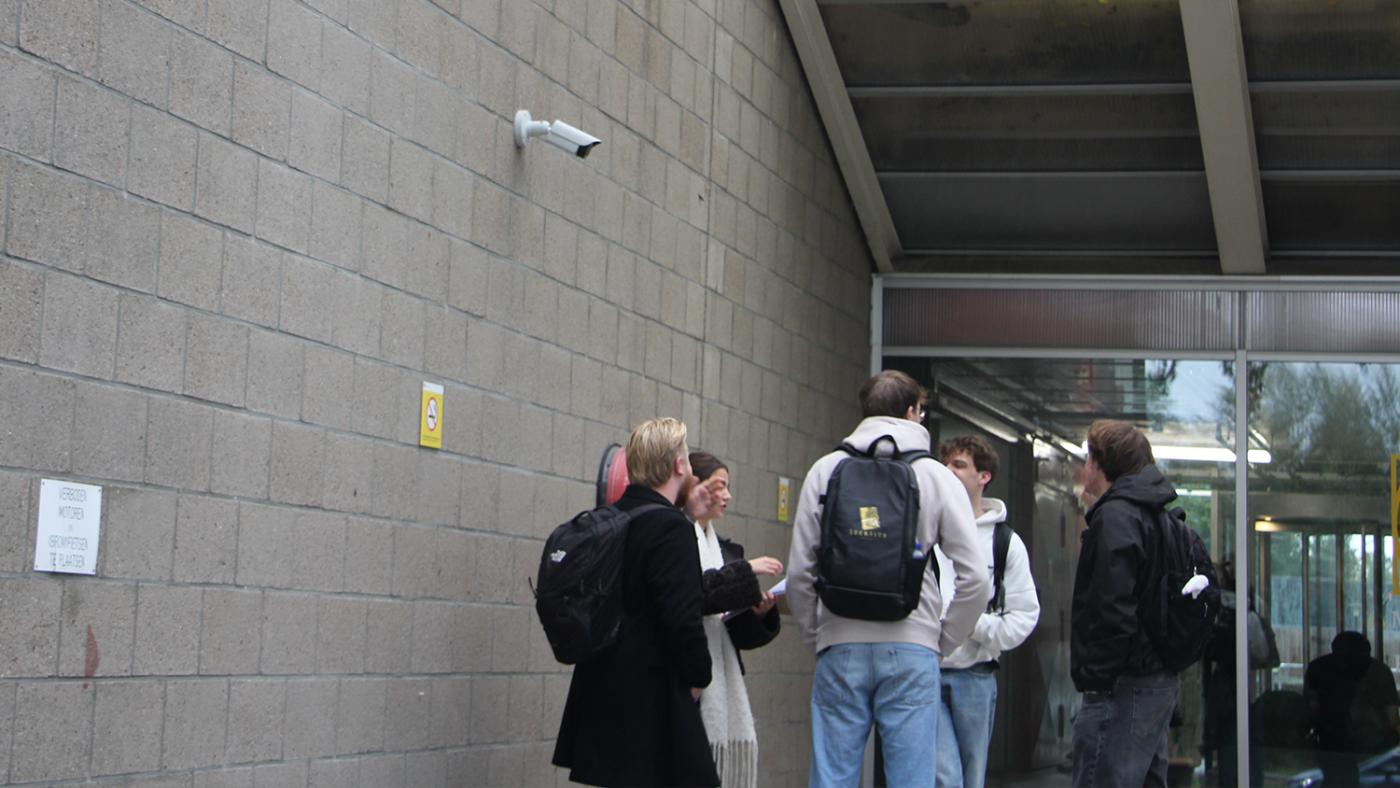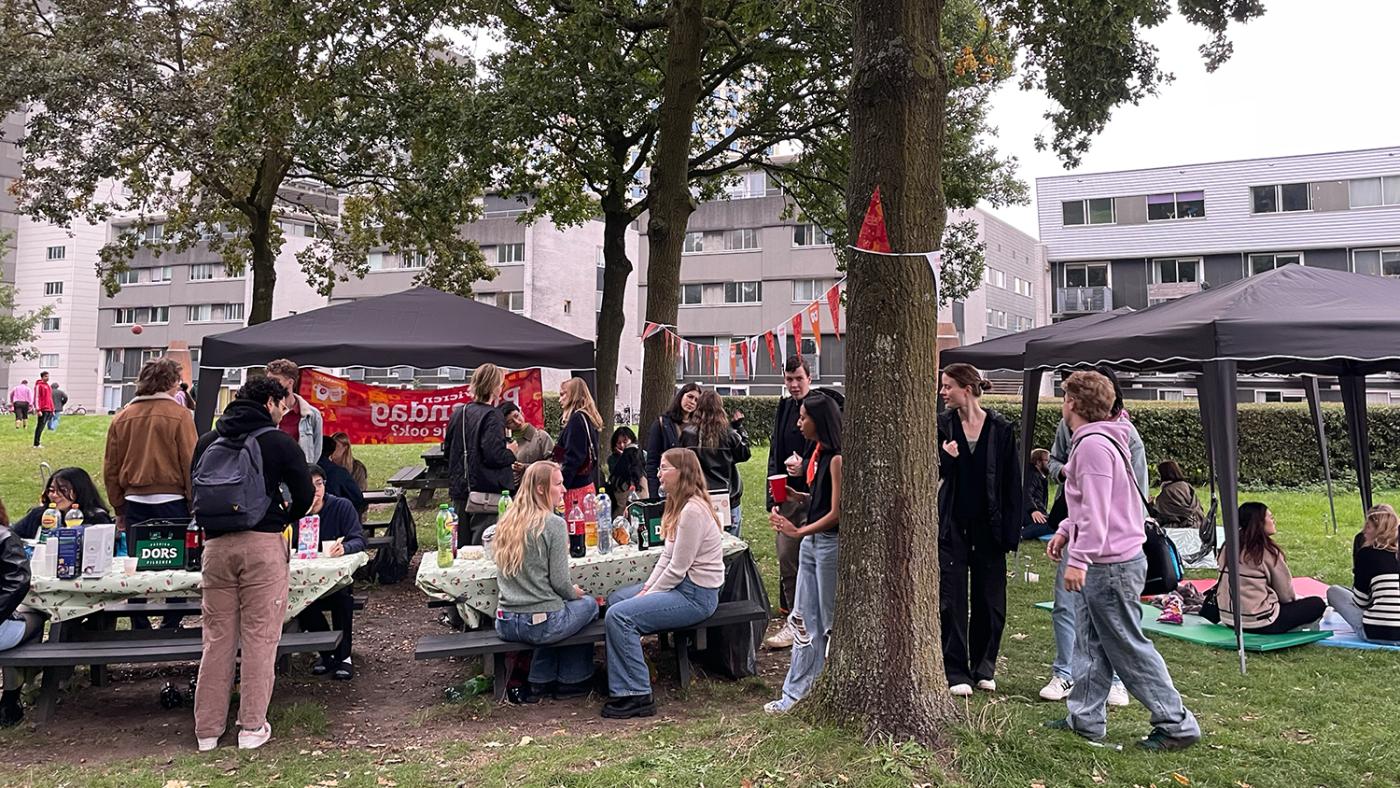Working on social cohesion
University and housing authorities are working to make USP safer

This summer, the murder of a 17-year-old girl, Lisa, shocked the Netherlands and sparked a public debate about how safe the streets are for women, especially at night. Lisa was murdered while she cycled back home to Abcoude after a night out in Amsterdam. This discussion, combined with two incidents at Utrecht Science Park (USP) last year, has put campus safety back in the spotlight. A recent survey conducted by the political party VVD (available in Dutch only, Ed.) and a questionnaire distributed at USP both revealed that students do not feel safe on campus after dark.
Street harassment: the figures
Sexual abuse and assault are major problems in the Netherlands. Statistics Netherlands showed that, in 2024, nearly 1.2 million Dutch people aged 16 and older experienced offline sexual harassment offline (a category that encompasses abusive behaviours that happen "in the real world" but do not include physical contact). Another 520,000 respondents were victims of physical sexual violence.
Street harassment is also common in Utrecht. A 2022 report by the municipality showed that 46 percent of girls, women, and LGBTQIA+ people had experienced street harassment in the previous 12 months. The incidents included staring (mentioned by 29 percent of respondents), catcalling (17 percent), and whistling (13 percent), but also spitting (3 percent), groping (3 percent), and requests for sexual acts (2 percent). Most cases were reported in the city centre (33 percent), with few people reporting incidents at Utrecht Science Park. Only six percent of the incidents took place in the Eastern district, where USP is located.
Figures on the police website report nine registered threats and two assaults at Science Park in 2024. It is unknown whether this also includes street harassment or sexually abusive behaviour.
Social safety measures
The university considers social safety a prerequisite for a campus where everyone can flourish in their studies and work. The university has teamed up with the municipality of Utrecht to conduct an annual inspection. It also works with students who live at USP and are part of the student council to investigate ways to improve campus safety. UU has taken several measures since the two incidents last year, such as changing the lighting on the viaducts. Incidents are reported to a safety network comprising USP partners, the fire brigade, the police and the municipality of Utrecht. This network also discusses safety measures.

Control room and security guards
In addition, the university has a control room available 24/7 for all UU students and employees. It monitors the security situation across the university using cameras focused on several buildings. UU security guards are present at USP day and night, in addition to special investigating officers deployed by the municipality. The university also takes safety into account when designing the grounds and when constructing or renovating buildings, says spokesperson Annelies Waterlander. For example, UU pays attention to lighting inside and around its buildings, ensuring that corners remain visible to passers-by.
Perception of safety
The university hopes that these measures will objectively improve safety at USP, but some people still do not feel safe there after dark, as a survey by the political party VVD in Utrecht revealed. The people who spoke to DUB at Science Park following the survey confirmed these feelings of unsafety. According to Ray Polman, a representative of USP residents and a member of the Johanna housing board and the student tenants' organisation BoKS, there are differences between objective safety and perceived safety. According to Ray, most measures to improve objective safety have already been taken, yet the campus is still perceived as unsafe, which he considers serious.
Social cohesion USP
According to Ray, resident representatives and USP administrators are working on steps that could reduce feelings of insecurity in the short term. However, he believes the problem is more structural and stems primarily from the lack of social cohesion on campus. Food trucks and other catering establishments close in the evenings and at weekends, leaving little to do at USP. People then seek social activities outside USP, leaving the site deserted. In addition, most student residences are studios with only one tenant, so no roommates to speak of.
Ray believes that, combined, the lack of facilities that stimulate sociability outside office hours and the prevalence of studio apartments result in a reduced sense of community among the 3,000 residents of Utrecht Science Park. This absence of social cohesion also reduces social control. The students DUB spoke to a few weeks ago also said that the presence of other people influences their perception of safety. Places with few or no people are considered particularly unsafe.

Neighbours' Day at USP. Photo: DUB
A lively campus
Rays says that a lot of work is being done to foster this sense of community. "Resident representatives from the housing associations, BoKS and Vidius are working hard with the USP stakeholders (namely, UU, HU, the Utrecht City Council, SSH, and the USP Foundation) to bring about structural improvements in terms of social cohesion." For example, on Saturday, September 27, the USP housing boards organised a Neighbours' Day, which Ray describes as a festive wake-up call to residents and the hospitality industry, reminding them of how lively USP could be. They are also working on expanding hospitality and social facilities outside office hours. In Ray's view, a livelier campus would improve perceived safety and thus complement the university's measures. He is optimistic. "The USP stakeholders are willing to work with residents to make the campus a more liveable place."
Comments
We appreciate relevant and respectful responses. Responding to DUB can be done by logging into the site. You can do so by creating a DUB account or by using your Solis ID. Comments that do not comply with our game rules will be deleted. Please read our response policy before responding.